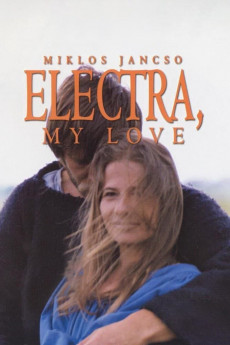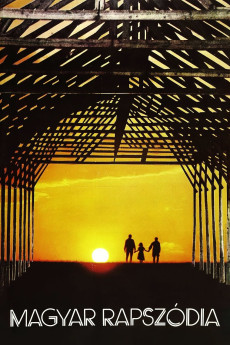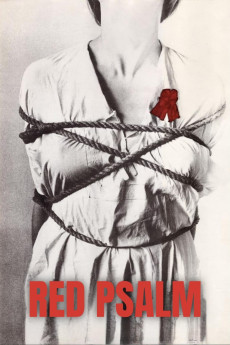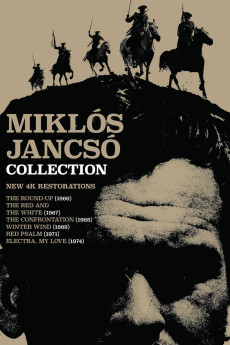Electra, My Love
It has been fifteen years since the death of her father, Agamemnon, and Elektra still burns with hatred for Aegisztosz, who conspired with Elektra's mother to kill him.
Égi bárány
Allegory of the suppression of the 1919 revolution and the advent of fascism in Hungary; in the countryside, a unit of the revolutionary army spares the life of father Vargha, a fanatical priest. He comes back and leads massacres. A new force, represented by Feher, apparently avenges the people, but only to impose a different, more refined and effective kind of repression.
Hungarian Rhapsody
The movie portrays a peasant revolt in Hungary in the early twentieth century.
Red Psalm
Set in the 1890s on the Hungarian plains, a group of farm workers go on strike in which they face harsh reprisals and the reality of revolt, oppression, morality and violence.
Indián történet
Still photographs and narration give an overview of the history of the American Indian.
Third Presence
Two rabbis show the ruins of an abandoned synagogue to a group of primary school-age Jewish children, and stand by as the children dip bread in honey, drink wine, pray, and sing.
Silence and Cry
Set during a turbulent era of disquiet, fear, persecution and terror, which permeates every corner of post-WWI Hungarian society. In 1919, after just a few months of communist rule the Hungarian Republic of Councils falls victim to a nationalist counter-revolution. Admiral Horthy, leader of the nationalist far right movement, becomes the self-proclaimed regent of Hungary, and assumes power as the legal Head of State. Soldiers of the short-lived Hungarian Red Army are now on the run from relentless secret policemen and patrol units of the nationalist Royal Gendarme. If caught, ex-Red Army soldiers are executed without mercy or proper trial. István Cserzi, a former soldier of the Red Army has fled to the Great Hungarian Plains and has taken refuge on a farm, which is run by two sympathetic women.
My Way Home
In the aftermath of World War II, a Hungarian teenager, captured by Soviet troops, forms an unlikely bond with a Russian soldier in a remote prison camp.
Ösz Badacsonyban
A celebration of the culture and the ancient traditions in Badacsony.
The Round-Up
After the failure of the Kossuth's revolution of 1848, people suspected of supporting the revolution are sent to prison camps. Years later, partisans led by outlaw Sándor Rózsa still run rampant. Although the authorities do not know the identities of the partisans, they round up suspects and try to root them out by any means necessary.
The Red and the White
In 1919, Hungarian Communists aid the Bolsheviks' defeat of Czarists, the Whites. Near the Volga, a monastery and a field hospital are held by one side and then the other.
Second Presence
An exploration of a decaying synagogue.
×


 Jaroslava Schallerová
as
A fiatal anya / The young mother
Jaroslava Schallerová
as
A fiatal anya / The young mother
 Daniel Olbrychski
as
A hegedülõ / The violinist
Daniel Olbrychski
as
A hegedülõ / The violinist

 Rada Rassimov
as
Rada Rassimov
as
 Udo Kier
as
Poór
Udo Kier
as
Poór

 András Bálint
as
Majláth gróf
András Bálint
as
Majláth gróf




 Viktor Chekmaryov
as
Viktor Chekmaryov
as



 Tatyana Konyukhova
as
Elizaveta
Tatyana Konyukhova
as
Elizaveta
 Mikhail Kozakov
as
Vörös parancsnok
Mikhail Kozakov
as
Vörös parancsnok
